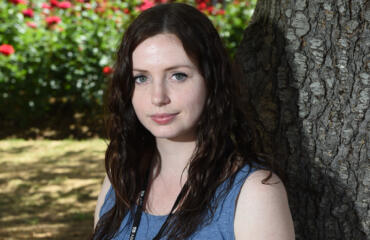‘IT HAS been a long journey for me with my PhD, maybe five years. I moved to Australia after I completed my Masters in Jordan. I got very good grades so I was able to get a full scholarship at the University of Melbourne.
My PhD supervisor, Professor Kenong Xia, pushed me to work with aluminium. We use aluminium everywhere. It is light and you can change its shape easily, but it isn’t strong. My project was to make aluminium as strong as steel while keeping it flexible and light.
I used Nano-Technology to make this new aluminium. In other words, I made it on a very small scale using small particles of carbon and aluminium.
I mixed carbon – which is strong, light and small – with aluminium. The bad news is carbon is weak when it is grouped together. I had to find a way to spread the carbon evenly throughout the aluminium. This requires heating the mixture then repeatedly changing its shape to force the particles apart.
I got good results. My new metal is 80 per cent aluminium and 20 per cent carbon. I made it much lighter than steel and almost as strong. Unfortunately it lost some of its flexibility, so it is not perfect. But, there is great potential in this research.
My aluminium could replace steel in cars to make them lighter. The cars then become more eco-friendly because they use less fuel. It will also mean that people would pay less for fuel.
The aerospace industry already uses aluminium in its planes, but mine is a potentially better alternative because it is cheaper, stronger and lighter.
I approached some companies with my research to get funding but companies don’t want to invest in new research. Since the 2008 recession companies have been cutting costs. Research and development is often seen as expendable.
Companies prefer to buy parts and materials from Asia – it is cheaper to get things done over there. They have to spend their money on selling their products. They don’t have time to invest in new materials like they used to. In the 1980s and 1990s, these companies had big research and development facilities at Monash University. These days, however, it’s less of a priority.
I showed that making this new aluminium is possible, but it needs more research on a bigger scale to achieve an industry standard.
I hope that my aluminium will be taken on. I will not lose my patience.’
Shouqie Goussous graduated PhD last year. The title of his research was: ‘Developing aluminium based nanocomposites via severe plastic deformation’.
* My PhD is an irregular series in which The Citizen speaks with recent Melbourne University PhD graduates.


